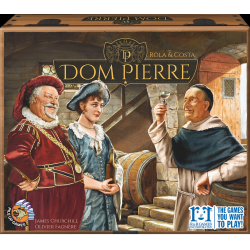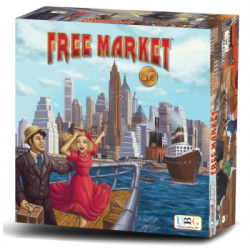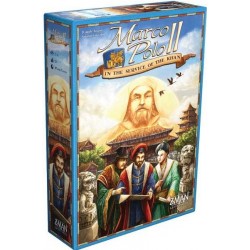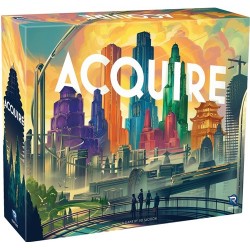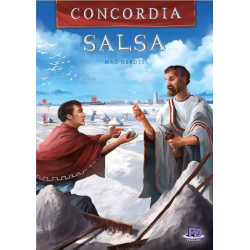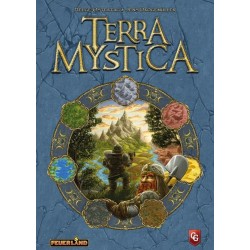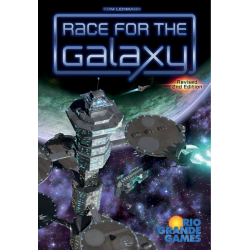No products in the cart.
Active filters
Acquire: 60th Anniversary Edition
Sid Sackson’s ACQUIRE has been a classic game of real estate since its release in 1964. Celebrate the 60 year anniversary with this very special edition featuring deluxe components.
Dom Pierre
The game is played in rounds, each round consisting of one action turn for each player starting with the first player and continuing clockwise.
Free Market: NYC
FREE MARKET: NYC is a competitive and strategic board game based on the principles of a free market economy, presented from a humorous and ironic perspective of life.
In this game, you will find yourself managing a group of people who work together in different assignments, aiming to grow their fortune according to your vision.
Marco Polo 2: In the Service of the Khan
"An epic follow-up to the acclaimed The Voyages of Marco Polo, but a standalone game with no need to own the original. Travel west from Beijing in search of wealth and fame!"
Acquire
In Acquire, each player strategically invests in businesses, trying to retain a majority of stock. As the businesses grow with tile placements, they also start merging, giving the majority stockholders of the acquired business sizable bonuses, which can then be used to reinvest into other chains. All of the investors in the acquired company can then cash in their stocks for current value or trade them 2-for-1 for shares of the newer, larger business. The game is a race to acquire the greatest wealth.
Concordia Salsa
"Salsa" is the Latin word for "salted", and in the Concordia: Salsa expansion for Concordia, players will find:
Two new maps: "Byzantium" and "Hispania"
Salt: Wooden salt tokens (a sixth commodity) and city tokens for salt-producing cities. Salt can be exchanged for any other commodity at any time, making it essentially a "wild" commodity.
Terra Mystica
In the land of Terra Mystica dwell 14 different peoples in seven landscapes, and each group is bound to its own home environment, so to develop and grow, they must terraform neighboring landscapes into their home environments in competition with the other groups.
Race for the Galaxy
Race for the Galaxy
In the card game Race for the Galaxy, players build galactic civilizations by playing game cards in front of them that represent worlds or technical and social developments. Some worlds allow players to produce goods, which can be consumed later to gain either card draws or victory points when the appropriate technologies are available to them. These are mainly provided by the developments and worlds that are not able to produce, but the fancier production worlds also give these bonuses.


